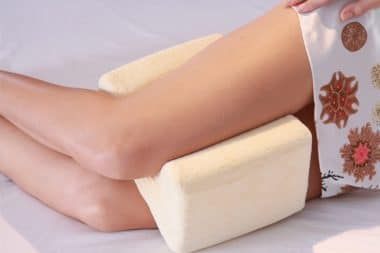Huge success of hip replacement therapy initiated an increase in knee replacement surgery by 800 percents. But, some medical experts, such as Dr. David T. Felson, a rheumatologist and epidemiologist at Boston University School of Medicine, believes that almost 30 percents of knee replacements do not provide expected relief and that there are other, more effective treatments.
Osteoarthritis
It is almost inevitable: as we age, one or more of our joints will go bad and start giving us hard time. Commonly, osteoarthritis was described as a breakdown of the cartilage in the joint, which protects bones from rubbing each other due to wear and tear. But, recent studies show that the disease is more complicated than that. It also involves bone, marrow and other tissues in and around joints. One of the recent studies show that one of two Americans will develop osteoarthritis during their lifetime. Besides age, genetics are found to be highly influential in potential development of osteoarthritis, but also injuries, obesity and lifestyle.
About 27 million Americans suffer from debilitating osteoarthritis. As our population is ageing, we can expect this number to get much bigger. The fact that we are getting fatter is making things even worse.
Is knee surgery the best option?
Dr. Felson believes that the number of knee replacement is not justified by the disease progression shown on the patients” â„¢ x-rays. He suggests postponing the operation and making some other lifestyle changes to relieve arthritic pain and to potentially restore the normal function of the joint.
Losing weight is the first order of business. By reducing the pressure a joint has to bear by losing even ten percents of weight, you can hugely reduce pain and discomfort of osteoarthritis.
Exercising is the next highly important part of the operation-free treatment. The best type of exercises strengthens the muscles in the front of the thighs. Leg presses, wall squats, mini-squats, flexion and extension exercises might extend the range of motion and reduce the pain. The stronger the muscles become, the less pain you will feel. If the joint hurts, stop using it.
There is also a range of medications that provide relief, from nonsteroidal anti-inflammatory drugs to injections of Hyaluronic Acid and Glucosamine and Chondroitin Sulfate supplements. Not everything works with all people, so it might take some time to find the right relief.
Operation, but later
In his article in The New England Journal of Medicine Dr. Felson suggested postponing knee replacement as long as possible. First, the operation is difficult and requires a long recuperation and rehabilitation. Second, new devices and surgical procedures are invented every day and, if postponed, the whole procedure might be much easier and more successful. Third, if done too early, knee replacement will have to be repeated after ten to 15 years. In the meantime, lose all that weight you are carrying around, your joints will thank you.






Reply